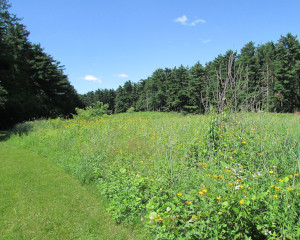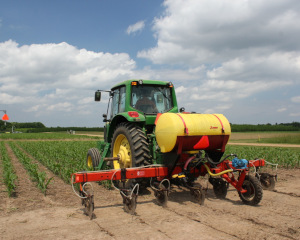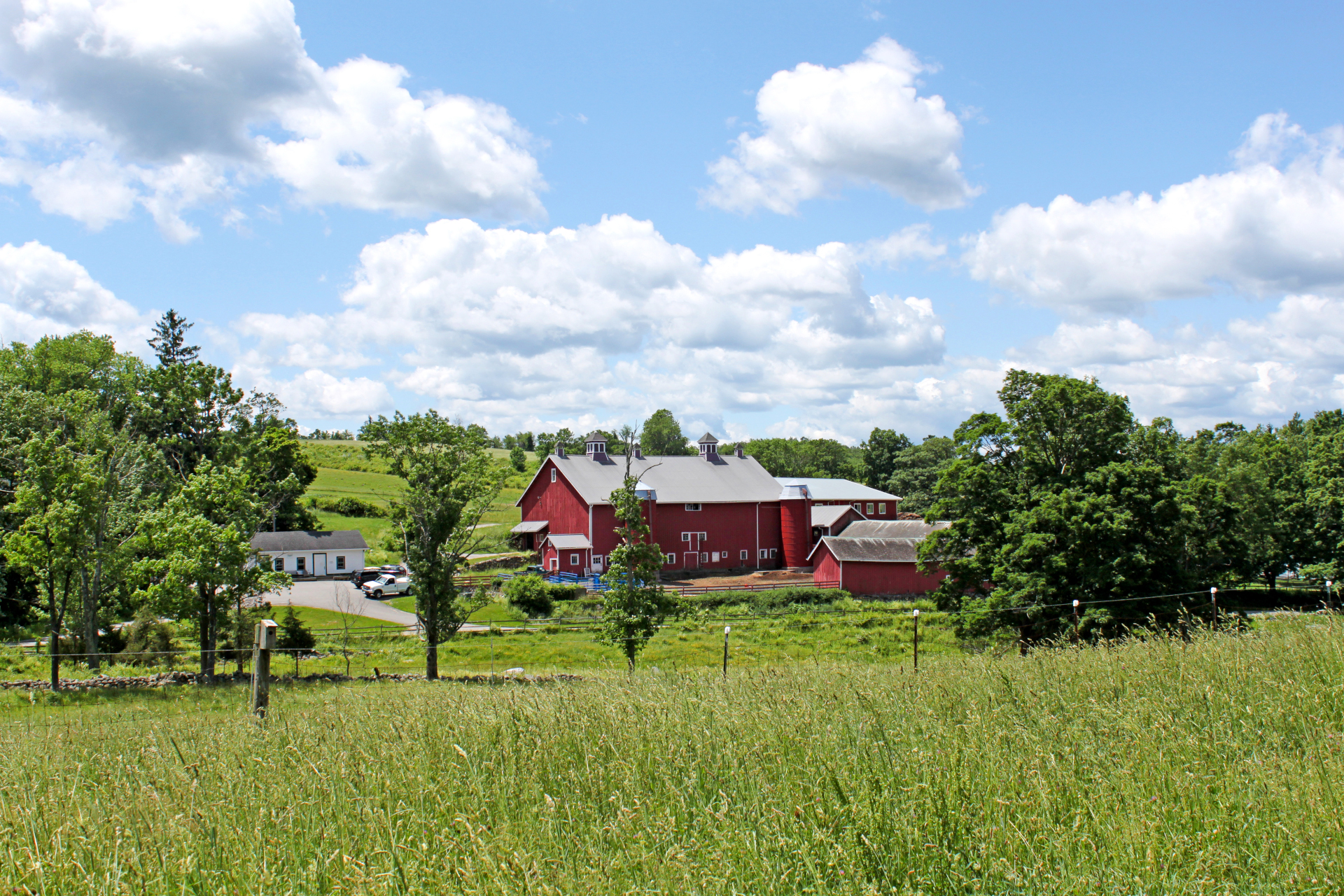
A Mission to Save Farming
An Interview with Kathleen Finlay
By Gayil Nalls
Sign up for our monthly newsletter!
Before you became President of Glynwood Center for Regional Food and Farming, in Philipstown, NY, you were Director of Harvard’s Center for Health and the Global Environment. The relationship between environmental health, human health, and public policy advocacy has been your key focus and concern. What would you like to contribute and achieve at Glynwood with your leadership during these challenging times?
When I was at Harvard, I became more and more interested in the connections between the natural world, agriculture, and human health. That seems pretty obvious in terms of how we depend on nature to grow and raise our food, and we have to eat to survive, so it seems like a pretty direct connection. Yet I think there still exists a lot of disconnect between human health, public health, food, and agricultural systems in the natural world. What I hope to do at Glynwood is to prove that regional food is a model that can be replicated nationally and that a regional food system supports healthier ecosystems, human health, community health, local prosperity, and food sovereignty in a way that our centralized commodified food system is failing to do.
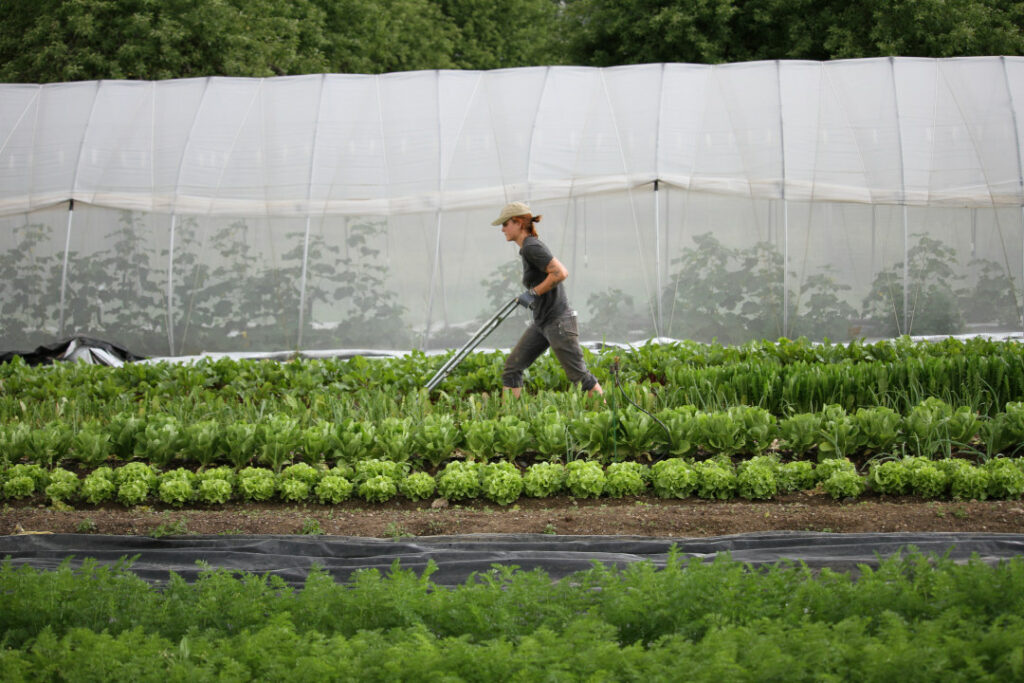
Yes, our problems are interlinked and so are solutions. The past three COVID years produced a mass exodus from New York City, which has pushed up farm prices in the surrounding areas to extreme highs, pricing farmers out of business. This has become a real issue in the Hudson Valley where wealthy people are driving up farm and land prices and they don’t farm. Farmers are being displaced and leasing the land from the new owners, bringing the idea of a new type of feudal system to mind for many. Is there any dialogue within Glynwood about how to address this escalating situation?
I do think that land access is one of the main barriers to building a regional food system with small and mid-size farms that we want to see, that are traditionally practicing regenerative agriculture and fostering food sovereignty. Land access has been a problem consistently in the Hudson Valley. Because more people are buying property in the Hudson Valley, it’s been a difficult moment for land access. However, at the same time, during the pandemic, people really discovered local food. Some folks have been scared to go into a grocery store, or the centralized food supply system was so broken that they sought out local food. So, I think there’s a little bit of a buffer there.
And then there are organizations like Glynwood. We absolutely help farmers find affordable land. There are resources through Glynwood and through other partners, that make land more affordable, including no or low-interest loans, or easements on the land that make it only available to farmers or folks who want to not develop the land by putting a house on it, for example. So, there are definitely tools. There’s always more to do, but there are lots of partnerships. We work with American Farmland Trust, for example, on their efforts to match land with farmers. Increasingly, private landowners who own historic agricultural land want to see that land go back into production and might build a relationship with a farmer to be able to have a lifelong lease or a very low-interest lease on their land so that while they own the land, the owner can be a non-operating farm owner and work with a farmer that might not be able to afford their own land yet.
Do you have any success stories that you could talk about?
There are lots of success stories. One of our board members owns some farmland in the Hudson Valley and has consistent farmers on that land that run their own businesses. So, the businesses are the farmer’s businesses, and the landowner is simply a landowner. There are farms like Obercreek that we work with, where they own the farmland, and they retain the farm businesses. There are several farmers that live and work on that farm and can get high-level management skills.
Through our Farm Business Incubator program, we’ve supported several farms in the Hudson Valley that are just starting out, and some of those are pieces of land that we have helped them find through partnerships with Open Space Institute or Scenic Hudson. And we help them ensure that their farm business is viable. I know that there’s been a lot of conversation about failure stories, but there are success stories that we’ve been involved with.
“At its core, regenerative agriculture is about working with the soils to capture more nutrients and to be able to sequester more carbon, with less disturbance, so no-till or minimal till, those sorts of sustainable practices.”
Can you talk more about the regenerative agricultural movement and management movement and why it’s so important in the world right now in conjunction with everything else that’s going on, including the gathering dark clouds concerning the future of food and how we are going to feed everyone?
Regenerative agriculture is sort of a newly popularized term for a suite of practices that are pretty old. I could even argue that it’s a lot of indigenous wisdom that has been recently popularized. At its core, it’s about working with the soils to capture more nutrients and to be able to sequester more carbon, with less disturbance, so no-till or minimal till, those sorts of sustainable practices. That’s important for a long-term view of land stewardship, which again has been a hallmark of the good food movement, in stark contrast to a really commodified, centralized agricultural system that has prioritized profits, efficiency, and scale over land stewardship. Obviously, as we are facing a climate crisis, we must be able to sequester more carbon in the soil, build resilient systems that will weather the extreme weather events we’re experiencing, and maintain a much longer-term view than short-term returns.
“If we all had regional food systems that were resilient and regenerative, we would stand a better chance of feeding ourselves rather than a very centralized system that is vulnerable to physical, cultural, sociopolitical struggles.”
I often get asked if those kinds of systems can feed the world, and I feel that we could do a lot better than what we are doing with a global commodified center. We’re seeing the effects of that system right now in terms of the conflict in Ukraine, the effect that’s having on grain, which is an example of a global commodified market. One of our programs here in Glynwood is to foster regional grain production in the Northeast. If we all had regional food systems that were resilient and regenerative, we would stand a better chance of feeding ourselves rather than a very centralized system that is vulnerable to physical, cultural, sociopolitical struggles.
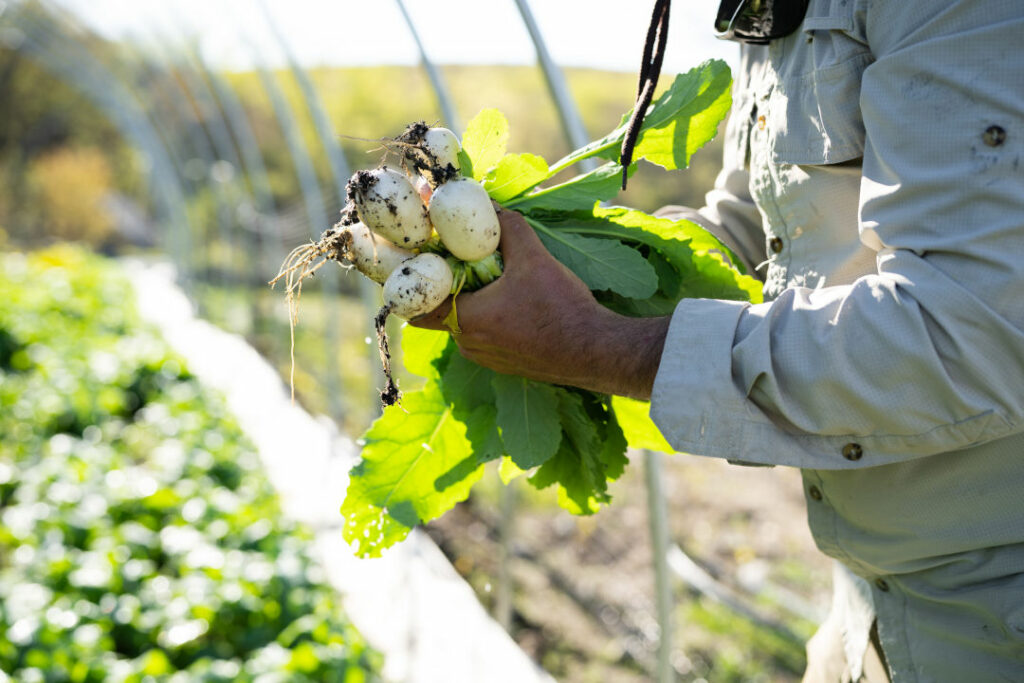
Glynwood is training young farmers through apprentice programs to be able to address issues locally and have them understand how it connects to the bigger picture. However, when I last visited Glynwood, I didn’t see any beekeeping. Isn’t Glynwood active in bee conservation?
We have had bees in the past, and we actually have an apprentice who’s been trying to catch a swarm this season. I don’t think there are bees residing right now, but she’s keenly interested in beekeeping. So, at the moment, Glynwood doesn’t have bees because our beekeeper moved on to another area. But many of the farms that are in our programs throughout the Hudson Valley have apiaries and integrate beekeeping into their systems. We just happen to be in between beekeepers, while there is an emerging beekeeper who is in need of bees.
So, that’s part of the picture?
Yes, of course.
But certainly, it has to be.
We’re blessed here physically at Glynwood . As you’ve seen, we are surrounded by tens of thousands of acres of protected land. So there’s a lot of biodiversity and pollinators that are just naturally here. So that’s also wonderful for this property in particular.
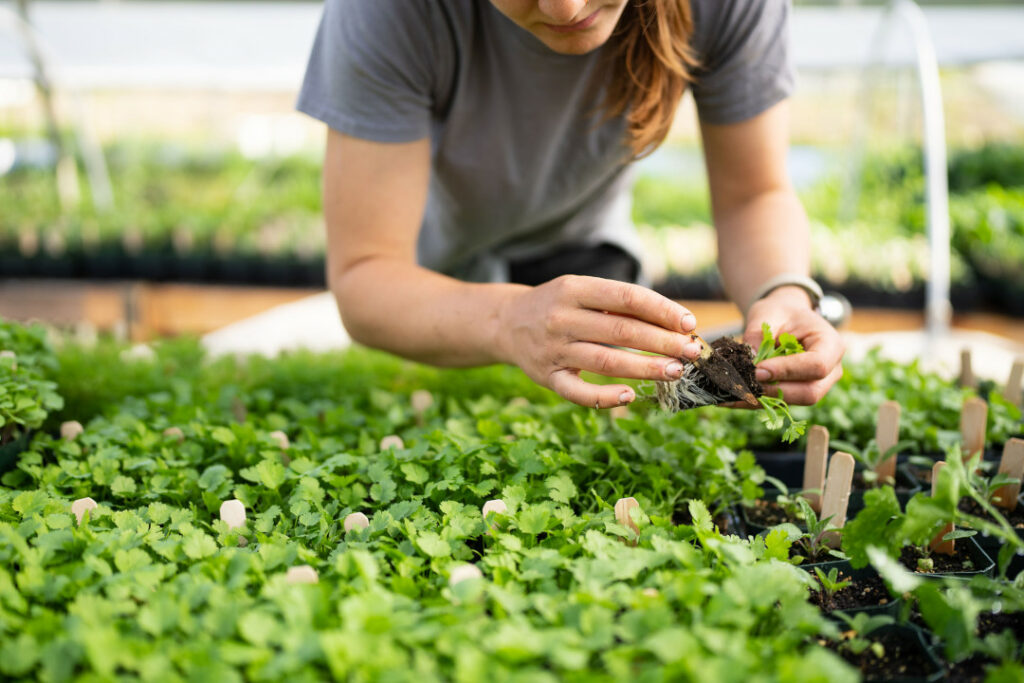
I think one of the biggest attributes of regenerative agriculture is that it prioritizes soil health and microbiology. Soil microbes are all-important in fixing nitrogen and unlocking phosphorus. Glynwood is doing a wonderful job of training young farmers in this type of regenerative soil maintenance. Are the benefits of this food production system something that you can pass on to small backyard framers?
Sure. We monitor our soil through simple soil tests that are available through Cornell in New York, for example. Yale also has a program. A lay gardener can find ways to learn about their soil and then have it monitored easily. In the past, we have done workshops and soil health field days in soil management for the general public, and we teach about soil stewardship. But we certainly do in our farmer training, —and region-wide—not just for the farmers locally. There’s been a wonderful collaboration emerging in the Hudson Valley dedicated to educating folks about soil science, mostly professionals, not necessarily lay folks. But I think there are many other programs and resources. One being Dr. Masoud Hashemi’s of Umass-Stockbridge School of Agriculture, who is one of the leaders in the field of soil health and microbial activity and has instructed us here.
What other organizations working in health, food, and the environment do you admire, and why?
UC Santa Cruz, my alma mater, is one. They have an excellent farmer training program where students are resident on the farm for a year, and the curriculum is really solid. I also really admire what they’re doing in terms of formal curriculum around farming– such as food sovereignty and food justice.
I’m a great admirer of Soul Fire Farm in Petersburg, New York, that’s educating Black farmers specifically and really thinking about food justice and food sovereignty. Quivira Coalition, based in Santa Fe, New Mexico, is another organization building food justice capacity. They provide farmer-rancher training and sharing of information, ideas, and resources with the general public. Intervale Center is a Vermont-based incubator program that we’ve learned a lot from over the years. The program gives land access to new entry farmers in a collective, cooperative way. I think they are doing a great job. There aren’t many organizations that are centering on regional food. Glynwood is really unique in that way. But there are organizations like the ones I mentioned, that are either addressing farmer training or food sovereignty. An international organization that I like quite a bit is called A Growing Culture that is working globally on serving smallholder farmers who are mostly women, and they’re doing that very thoughtfully.
Well, what are you most proud of with Glynwood’s efforts?
I wouldn’t have Glynwood take all the credit for this, but I am very proud of how we have changed or helped evolve the narrative of good food away from an elitist foodie perspective and more towards a food sovereignty perspective. I think if we rewind 10 years ago when I started here, it was sort of bougie. The good food movement was primarily catering to wealthy privileged folks and featured white tablecloth restaurants and four-hour meals, and that sort of business. And that’s not what I’m interested in, and I think it’s taken time for folks to understand that high-quality consciously grown or raised food should serve all of us and not just the very few.
This has increasingly shown up in our programming here at Glynwood, but beyond that, the conversation is evolving toward food as a human right and as a social justice issue, rather than just joyful, flavorful stuff, which is of course why it’s so great. But it’s really moved beyond that, and I’m proud of Glynwood’s role in the evolution of that perspective.
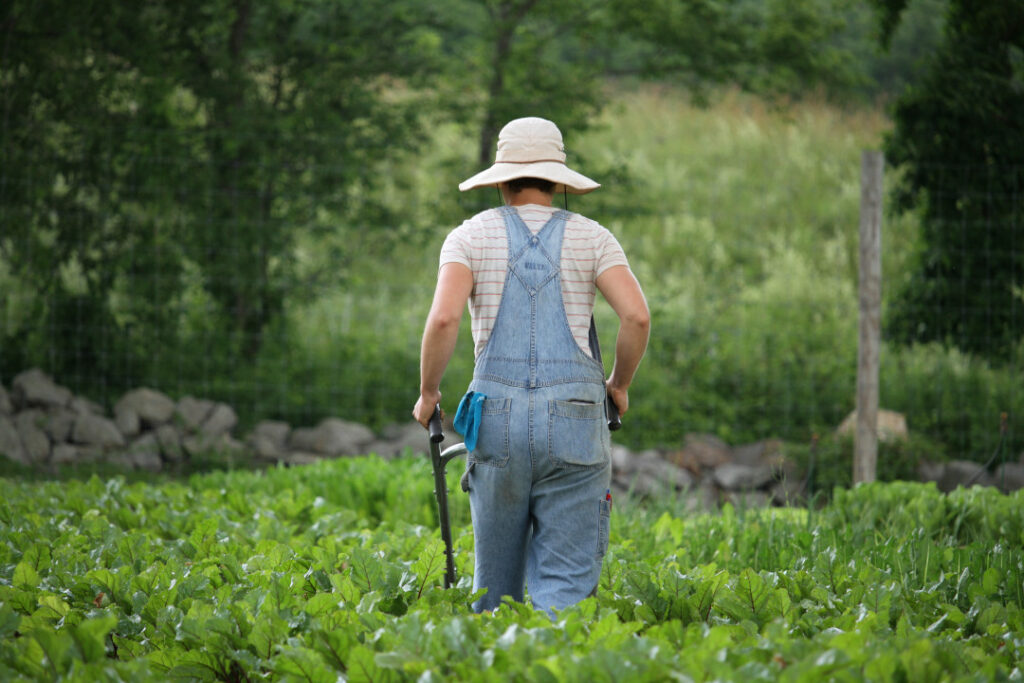
That is very important. And I feel like you’re somebody who clearly has their finger on the pulse of the Hudson Valley region, but also nationally and internationally, because we’re all facing very similar problems around the world. And I’m wondering who the thinkers and the writers are that have been major influencers on you and your thinking.
There are so many. Joan Gussow, Alice Waters, and Mary Cleaver are three women that come to mind that were early influences on my thinking. Fred Kirschenmann is also really important. I encountered them, and Frances Moore Lappé, the author of Diet for a Small Planet, early in my interaction with the food movement.
Lately, I’ve been really impressed with my partner’s podcast Food with Mark Bittman. He highlights awesome writers and thinkers, such as Leah Penniman, the co-founder of Soul Fire Farm. Her book Farming While Black was really eye-opening and important for me. So was Marya Rupa and Raj Patel’s most recent book, Inflamed: Deep Medicine and the Anatomy of Injustice.Laura Lengnick, who’s our director of agriculture, also recently published a second edition of her book, Resilient Agriculture: Cultivating Food Systems for a Changing Climate.
Are there things individuals can do to help the regenerative agriculture movement?
There’s nothing better than planting your own seeds and serving the food you have grown to the people you love a few months later. I totally encourage folks to do that if they can. It does take some time and some of us don’t have that privilege of time available. I would say to those folks that one of the best ways you can support your regional farmers, have fun, and improve your health is by joining a community-supported agriculture farm, that’s a CSA farm.
According to that model, you typically pay upfront for a season’s worth of food, and you pick up your weekly share as an investor in that farm. I grow some food, but I also participate in our CSA, and it’s synergistic because I’m able to ask the farmers questions about who’s eating my basil and such. When I’m struggling with my garden, it’s great to be able to get professional answers. Some CSAs offer educational activities for their members.
CSAs are good for the farmers and so good for the eaters in terms of health outcomes.
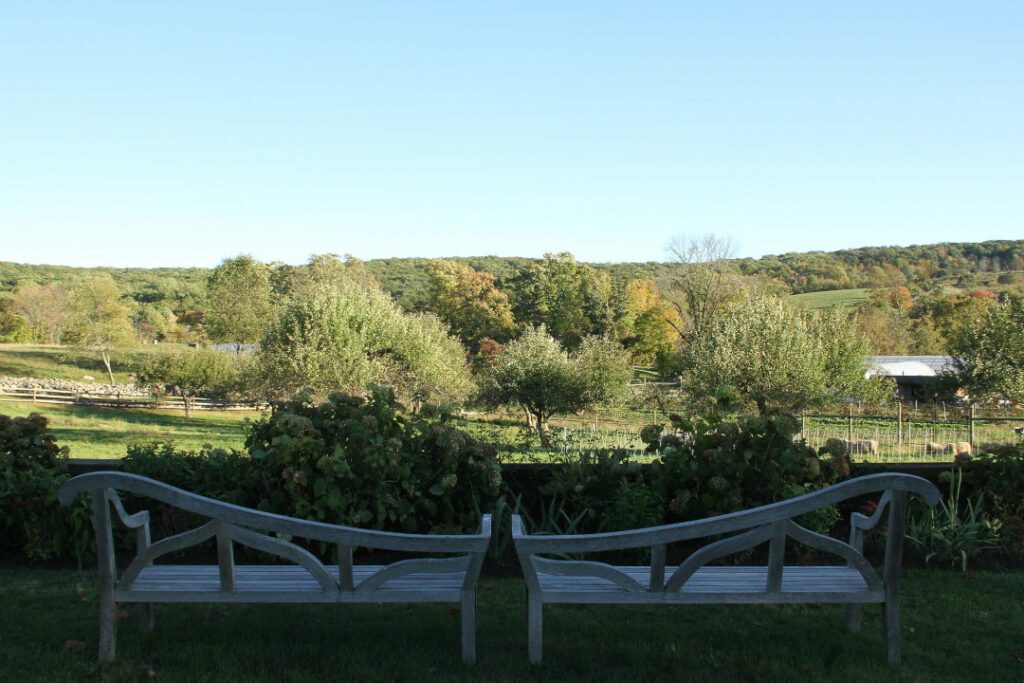
Learn more: Recommendations from Kathleen Finlay:
Food by Mark Bittman (podcast)
Healing Grounds by Liz Carlisle (book)
Resilient Agriculture by Laura Lengnick (book)
Animal, Vegetable, Junk by Mark Bittman (book)
The Edible Magazines
Heritage Radio (several podcasts)
Kathleen Finlay is a leader in the regenerative agriculture movement. She has been President of the nonprofit organization The Glynwood Center for Regional Food since 2012. Previously, Kathleen was a Director of Harvard’s Center for Health and the Global Environment. She is also the founder of Pleiades Network, a membership organization working to advance women’s leadership in the sustainability movement.

As Ireland transitions from the rich, smoky scent of peat-burning to a more sustainable future, its olfactory heritage is evolving. What will become the next iconic aromatic symbol of Ireland?
Click to watch the documentary trailer.


